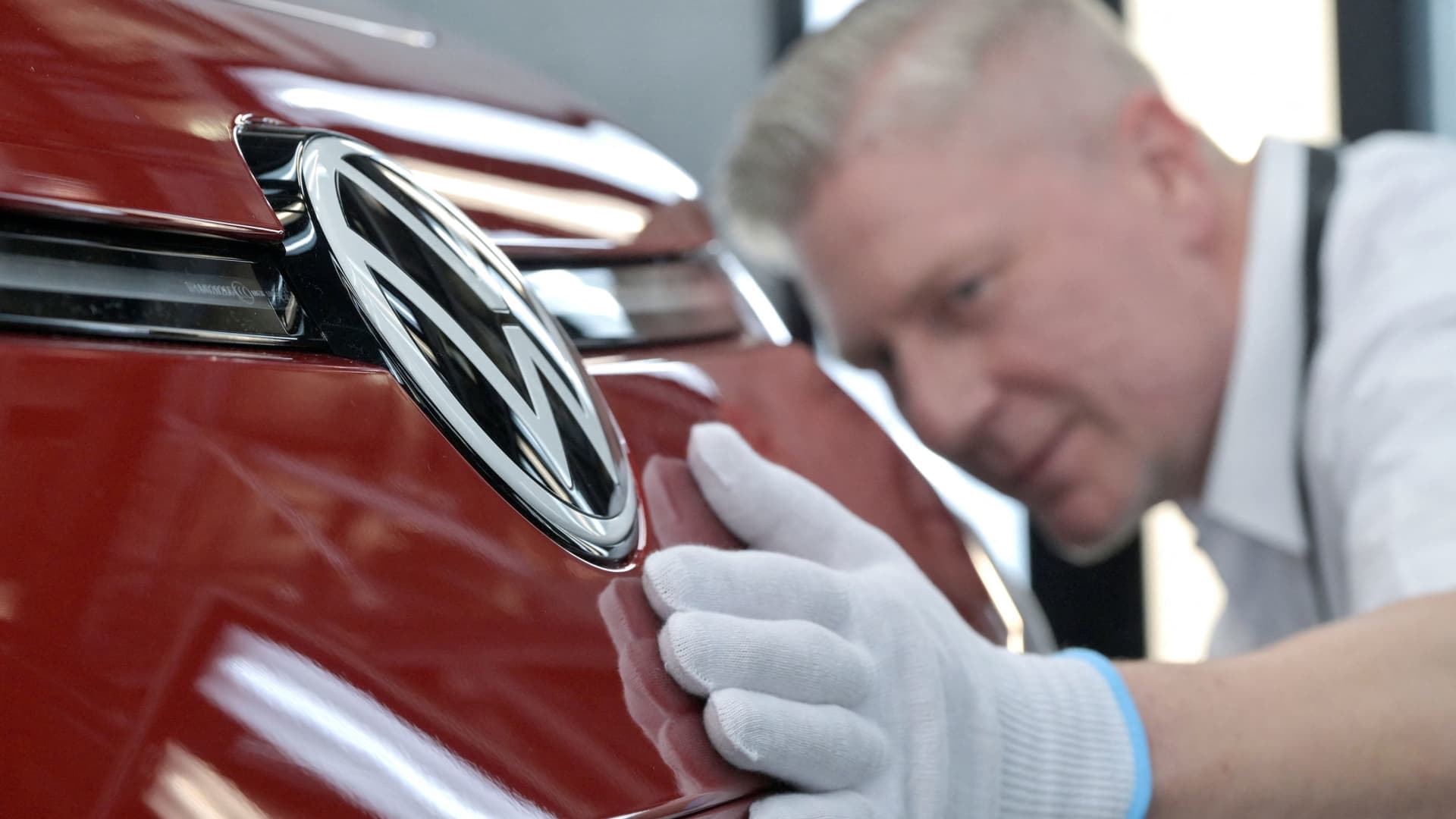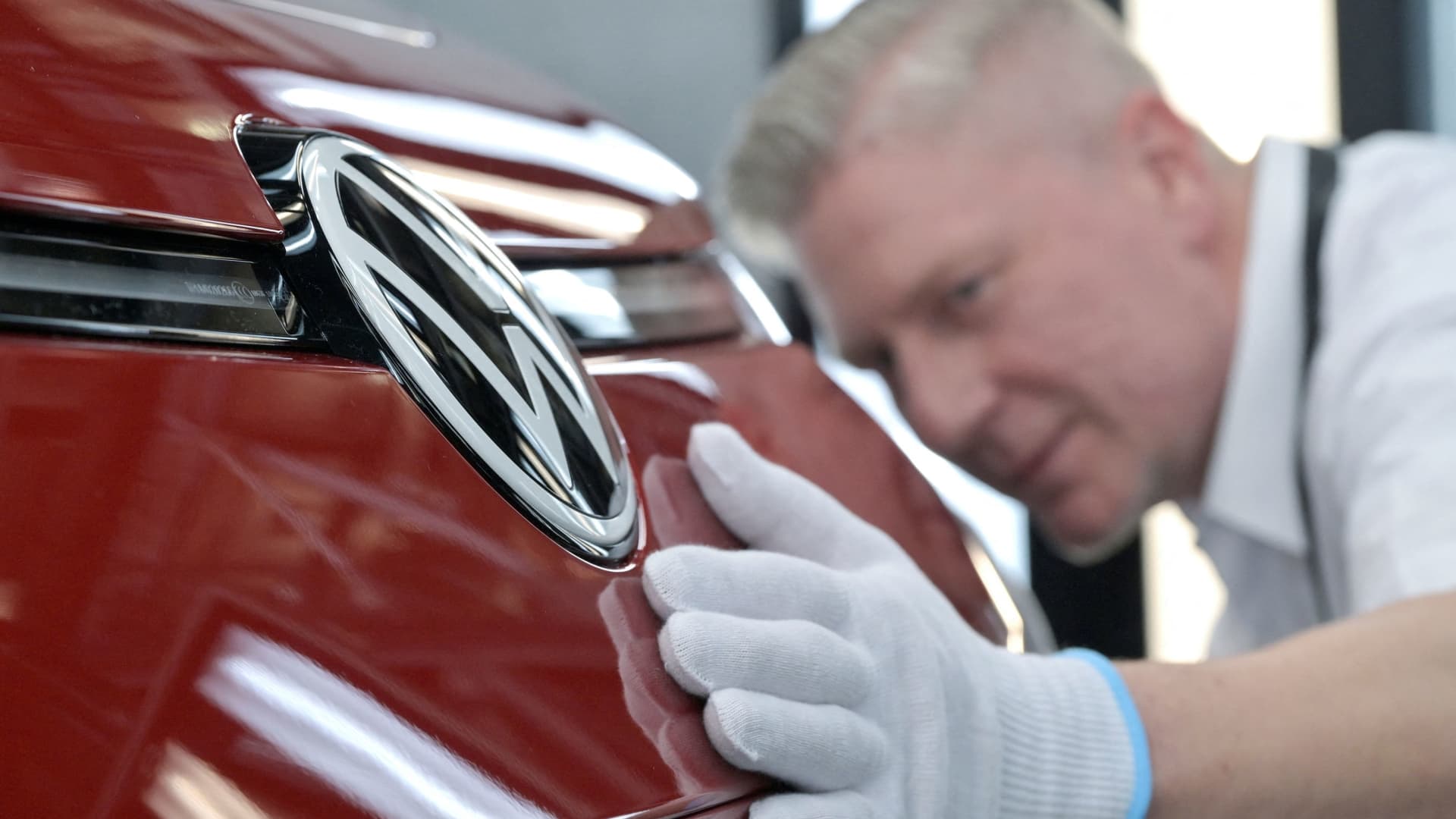The Impact of US Trade Policies on German Automakers: A Comprehensive Analysis
Introduction: The Intersection of Trade and Automotive Industry
The global automotive industry is at a crossroads, with trade policies playing a pivotal role in shaping its future. German automakers, renowned for their engineering excellence and global reach, find themselves in the midst of a complex web of trade disputes, particularly those involving the United States. The recent revival of tariff threats by former President Trump and the subsequent U.S.-Japan trade agreement have introduced a new layer of uncertainty, demanding a strategic response from German automakers.
The Looming Threat: Trump’s Tariff Policies and Their Ripple Effects
The specter of tariffs has cast a long shadow over the German automotive industry. The threat of a 30% tariff on imported goods, combined with existing duties, could significantly inflate consumer prices, leading to a reduction in demand. This scenario poses a direct threat to the profitability and competitiveness of German manufacturers, who rely heavily on exports to the U.S. market.
Economic Impact: A Double-Edged Sword
The immediate economic impact of tariffs is twofold. Firstly, higher import costs would lead to increased prices for consumers, potentially dampening demand. Secondly, the threat of tariffs introduces a climate of uncertainty that can disrupt long-term investment decisions and strategic planning. Automakers may be forced to reconsider their production locations, supply chains, and pricing strategies, leading to costly adjustments and operational inefficiencies.
Strategic Adjustments: A Necessary Evil
In response to the tariff threats, German automakers are exploring various strategic adjustments. These include:
– Reshoring Production: Establishing production facilities within the U.S. to circumvent tariffs and reduce costs.
– Supply Chain Diversification: Reducing reliance on a single market by diversifying supply chains and exploring alternative markets.
– Pricing Strategies: Adjusting pricing strategies to absorb some of the tariff costs, although this may impact profit margins.
The U.S.-Japan Trade Deal: A Silver Lining or a New Challenge?
The U.S.-Japan trade agreement, while seemingly a bilateral affair, has broader implications for global trade relations. The deal, which includes a reduction of U.S. tariffs on imported Japanese vehicles and parts, has sparked optimism among European automakers. The hope is that this agreement could pave the way for similar concessions in negotiations between the U.S. and other major exporters, including the European Union.
Competitive Dynamics: A Double-Edged Sword
However, the agreement may also create new competitive dynamics. A more favorable tariff regime for Japanese automakers could put German manufacturers at a disadvantage in the U.S. market. This intensifies the pressure on German automakers to secure their own trade concessions or find alternative strategies to maintain their market share.
The Broader Context: Challenges Facing German Automakers
The tariff threats and trade negotiations are occurring against a backdrop of existing challenges for German automakers. The industry is undergoing a period of significant transformation, driven by technological advancements, changing consumer preferences, and increasing regulatory pressures.
Technological Shifts: The Electric Vehicle Revolution
The shift towards electric vehicles (EVs) requires substantial investments in research and development, new production facilities, and battery technology. German automakers are at the forefront of this revolution, with companies like Volkswagen, BMW, and Mercedes-Benz investing heavily in EV technology. However, the pace of change is rapid, and the competition is fierce, particularly from Chinese and American manufacturers.
Regulatory Pressures: The Green Agenda
Automakers face pressure to reduce emissions and comply with increasingly stringent environmental standards. The European Union’s Green Deal, which aims to make the EU climate-neutral by 2050, is a significant driver of this regulatory pressure. German automakers must navigate these regulations while maintaining their competitiveness in the global market.
Economic Uncertainties: A Global Perspective
Global economic uncertainties, including slowing growth in key markets and fluctuations in currency exchange rates, add another layer of complexity. The COVID-19 pandemic has further exacerbated these uncertainties, with supply chain disruptions and reduced consumer demand impacting the industry.
Strategies for Survival: Navigating the Tariff Maze
Faced with these challenges, German automakers must adopt proactive strategies to mitigate the risks and capitalize on emerging opportunities.
Diversification: Spreading the Risk
Reducing reliance on the U.S. market by expanding into other regions, such as Asia and South America, can help to cushion the impact of potential tariffs. This may involve establishing new production facilities, forging partnerships with local players, and tailoring products to meet the specific needs of different markets.
Innovation: Staying Ahead of the Curve
Investing in research and development to stay ahead of the curve in terms of technology and product innovation is crucial for maintaining competitiveness. This includes developing EVs, autonomous driving systems, and other cutting-edge technologies that can differentiate German automakers from their rivals.
Cost Optimization: Doing More with Less
Implementing measures to improve operational efficiency and reduce costs can help to offset the impact of tariffs and other trade barriers. This may involve streamlining production processes, optimizing supply chains, and leveraging automation to reduce labor costs.
Strategic Alliances: Strength in Numbers
Forming strategic alliances with other automakers, technology companies, and suppliers can provide access to new markets, technologies, and resources. These alliances can also help to share the costs and risks associated with developing new products and entering new markets.
Active Engagement: Advocating for Fair Trade
Engaging actively with policymakers and trade negotiators to advocate for fair and equitable trade policies is essential. This involves communicating the potential impact of tariffs on the German automotive industry and working to find mutually beneficial solutions.
The EU’s Role: A Unified Front Against Protectionism
The European Union plays a critical role in defending the interests of German automakers in international trade negotiations. By presenting a united front, the EU can exert greater leverage and negotiate more favorable terms than individual member states.
Trade Negotiations: The Path Forward
The EU is actively seeking to conclude a trade deal with the U.S. that would address the issue of tariffs and promote greater trade cooperation. However, negotiations have been challenging, and it remains to be seen whether a mutually acceptable agreement can be reached. The EU is also exploring alternative strategies, such as challenging U.S. tariffs at the World Trade Organization (WTO) and forging trade agreements with other countries.
The Potential for Disruption: A Look Ahead
The future of the German automotive industry in the face of trade tensions remains uncertain. While the U.S.-Japan trade deal offers a glimmer of hope, the threat of tariffs and other trade barriers persists. The industry must be prepared to adapt to a rapidly changing global landscape, embracing innovation, diversification, and strategic partnerships to maintain its competitiveness.
The Road Ahead: Embracing Change
The path ahead for German automakers is fraught with challenges, but also with opportunities. The industry has a long history of innovation and resilience, and it is well-positioned to adapt to the changing global landscape. By embracing new technologies, diversifying into new markets, and engaging actively with policymakers, German automakers can navigate the tariff terrain and emerge stronger than ever.
Conclusion: Resilience in the Face of Uncertainty
The German automotive industry stands at a crossroads, facing a complex interplay of trade policies, technological shifts, and economic uncertainties. The road ahead is challenging, but the destination—a future of sustained growth and global leadership—remains within reach. The key lies in proactive adaptation, strategic foresight, and a commitment to innovation. These qualities have always defined the German automotive industry, and they will continue to guide it through the turbulent waters of global trade disputes. The journey may be fraught with obstacles, but with resilience and determination, the industry can navigate the tariff terrain and emerge stronger than ever.












